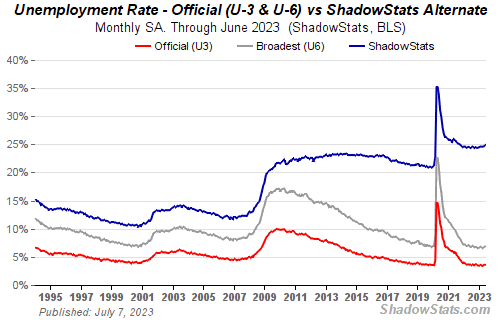These are dark days indeed if you’re a unionized employee for one of the Big Three automakers, especially General Motors. You’re facing unemployment and the loss of the few well-paying jobs left in the US economy at a time when unemployment is skyrocketing.

But many people throughout the nation don’t seem to care.
“Two-thirds of the American public think autoworkers and their union are highly paid and don’t deserve help,” said industry analyst Maryann Keller of Keller and Associates, a market researcher near New Haven, Conn.
The Big Three CEOs flew separately on private jets.
[GM CEO Rick] Wagoner’s private jet trip to Washington cost his ailing company an estimated $20,000 roundtrip. In comparison, seats on Northwest Airlines flight 2364 from Detroit to Washington were going online for $288 coach and $837 first class. . . .
Ford CEO [Alan] Mulally’s corporate jet is a perk included for both he and his wife as part of his employment contract along with a $28 million salary last year. Mulally actually lives in Seattle, not Detroit. The company jet takes him home and back on weekends.
Mulally made his case Tuesday before the committee saying he’s cut expenses, laid-off workers and closed 17 plants.
“We have also reduced our work force by 51,000 employees in the past three years,” Mulally said.
Yet Ford continues to operate a fleet of eight private jets for its executives. Just Tuesday, one jet was taking Ford brass to Los Angeles, another on a trip to Nebraska, and of course Mulally needed to fly to Washington to testify.
Ford, it should be noted, claims to be in better shape than GM or Chrysler, having cash to last through 2009. But, burning $6 billion per month, the Big Three have asked for a $25 billion bailout, an amount that at that rate would last them on average a little over four months. So it should be no surprise that Congressional leaders want to see a plan by December 2.
One has to admit that at face value, the automakers’ request makes little sense. And while it is regrettable to see unions undermined in an era where that’s all the rage, UAW has served its members poorly:
The ratcheting productivity that allowed for these benefits was good for the bottom line but it meant that the factories continued to be, in [UAW President Walter] Reuther’s words, “gold-plated sweatshops.” The foundry and the assembly line remained an inhuman way to make a living. The common pattern was for workers to sign on, thinking to stay just a few years, but to be seduced by the benefits — and then say to themselves “it’s only 30 years.”
The mind-numbing drudgery, the high injury rates, the heat and smoke and oil in the air led many workers to hit the bottle — and, in one famous case, led black Detroit Chrysler worker James Johnson to pick up a gun and shoot two supervisors and a co-worker. A jury, after a plant tour, found that brutal working conditions and Chrysler’s shop-floor racism had literally driven Johnson insane.
Removed from the daily grind of factory life, however, UAW officials became far more attuned to the gold-plating in the shops than to the sweat. They sought gains they could measure in dollars, and Reuther’s belief in the benefits of technology and productivity kept him from protesting either automation or speedup. Officials came to see themselves as partners with management, truly convinced that “what’s good for GM is good for America,” and for UAW members.
There can be little serious question that the fall of the Big Three would be a disaster for the US economy.
Despite angry opposition to a potential bailout, auto companies contend that if they go bankrupt, there will be huge job losses, not only on factory floors, but also in dealerships and parts suppliers.
It is unclear, however, whether a bailout would solve auto companies’ problems. The carmakers say they need the money to get to the year 2010, when they are due to see big savings from health care cuts and new car models.
“Of course, a lot of Americans feel they have heard this before,” [NPR’s Frank] Langfitt says. “In the meantime, we have too many workers making too many cars for people who aren’t buying them. It looks like there could be a need for more layoffs.”
But “‘One out of 10 jobs in this country are auto-related. Twenty percent of retail sales are auto-related or automobiles, so this is a national problem,’ Levin told NBC’s ‘Meet the Press'” on November 16.
We’ll be losing jobs no matter what the outcome of the automakers’ bailout. We’ll be losing them because people aren’t earning enough in real wages to continue to consume manufacturing output. High wages aren’t the problem here. Low wages are.